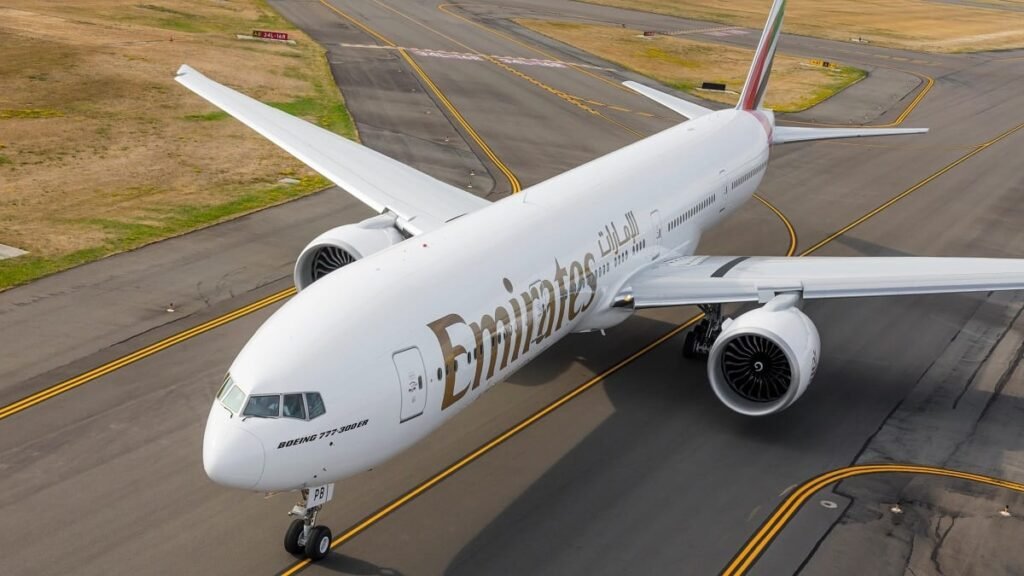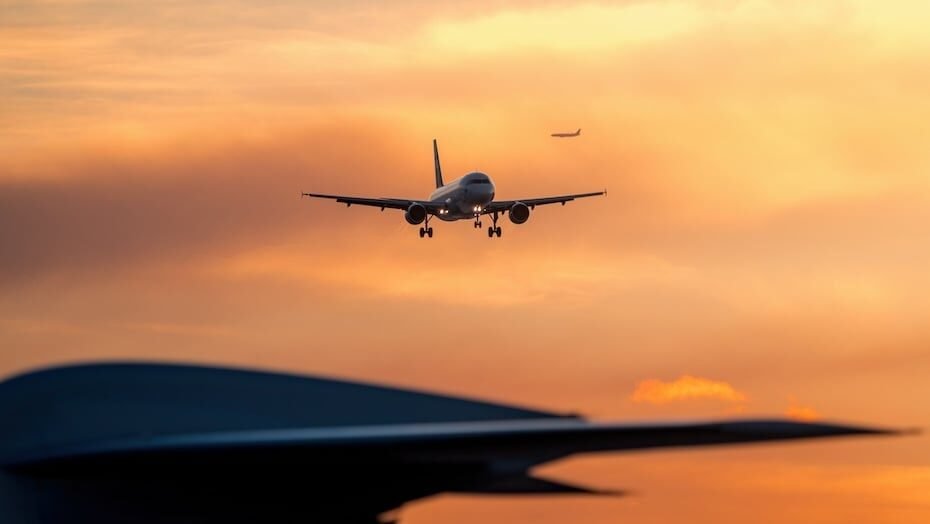In an impressive show of coordination and commitment to passenger safety, major UAE airlines have temporarily suspended flights to nine international destinations. The decision comes amid heightened geopolitical tensions and sudden airspace closures across parts of the Middle East. Carriers including Emirates, Etihad, and flydubai swiftly responded to the developments by cancelling or rerouting affected flights, ensuring safety remains paramount.
As airspaces over key conflict zones rapidly shut down, the UAE’s top airlines reacted with remarkable speed and efficiency. The abrupt halts serve as a strong reminder of the dynamic nature of global air travel and the importance of proactive crisis management in aviation.
What Destinations Are Affected?
Flights to and from the following nine destinations have been impacted by the temporary suspension:

- Tehran (Iran)
- Baghdad and Basra (Iraq)
- Amman (Jordan)
- Beirut (Lebanon)
- Damascus (Syria)
- Tel Aviv (Israel)
- Shiraz and Mashhad (Iran)
In each case, flights have been either fully cancelled or diverted through alternative air corridors. Some aircraft were even recalled mid-flight, turned back to the UAE, or redirected to safer routes with extended travel times.
How Each Airline Responded
Emirates
Dubai-based Emirates quickly halted operations to key destinations, including Iran, Lebanon, Iraq, and Jordan. The airline placed the safety of its crew and passengers at the forefront and initiated a wave of cancellations within hours of the initial airspace closures. Emirates also offered complimentary rebookings and fare refunds, while launching a dedicated update page to inform affected customers.

Etihad Airways
Etihad, headquartered in Abu Dhabi, cancelled multiple flights between the UAE and Israel, notably suspending the Abu Dhabi–Tel Aviv route. It also enacted significant schedule changes for regional flights passing through compromised airspace. Etihad has since ramped up customer support services to assist travellers with rebooking options and accommodation, where necessary.
flydubai
flydubai issued notices suspending operations to Beirut, Damascus, Tehran, and Amman. The airline also rerouted several flights in real time, demonstrating the agility of its flight operations team. Affected passengers have been advised to follow flight status updates through flydubai’s mobile app and website.
Wider Disruption Across the Region
The UAE is not alone in dealing with these disruptions. Airlines across Europe and Asia have similarly rerouted flights or paused services to avoid flying over areas with heightened military activity. This ripple effect has led to longer flight durations, crowded alternate corridors, and increased pressure on air traffic management systems.
As airspace closures continue to expand, the overall impact on global aviation is growing. Airports across the UAE, especially in Dubai and Abu Dhabi, have taken additional measures to help manage passenger flow, including increasing staff presence, announcing live updates, and coordinating with airline partners to maintain service standards.
Passengers Left Stranded—but Supported
Naturally, the sudden cancellations and changes have left thousands of passengers stranded or forced to revise their travel plans. However, most affected travellers have praised the swift communication and support from UAE airlines, including SMS updates, call centre support, and clear refund policies.
Many airlines are now prioritising rebooking passengers onto future flights or offering rerouting via alternate cities. Some are even covering accommodation costs for those with extended layovers.
For business travellers, families, and students caught in the disruption, the airlines’ customer-first approach has provided much-needed relief during a stressful situation.
Behind the Closures: Rising Regional Tensions
The flight suspensions come in the wake of escalating military tensions in the Middle East. Strategic airspace corridors over multiple countries were shut down with little warning, forcing carriers to adapt quickly. With multiple regions simultaneously becoming restricted, flight planning and routing teams faced a highly complex challenge.
While the root causes of the airspace closures are geopolitical, the aviation industry must act with precision, neutrality, and a safety-first mindset. The past 24 hours have proven how critical this is—and how well UAE airlines can execute it.
Real-Time Flight Tracking Shows Dramatic Changes

Flight-tracking data has painted a striking picture of the scale of the disruption. Planes were seen clustering over less affected airspaces, with many diverting via Egypt, Saudi Arabia, or Central Asia. Routes from Asia to Europe have become more congested as a result, adding time and cost to long-haul journeys.
UAE carriers, with their extensive international reach, have had to rethink entire sections of their route maps overnight. Flights that would typically take six hours have been extended by up to two or three additional hours in some cases.
Despite these changes, most airlines have maintained punctuality on adjusted routes, highlighting their operational resilience.
Humanising Crisis: Airline Teams Go Above and Beyond
Behind the scenes, airline staff across check-in counters, call centres, flight operations, and customer service departments have stepped up like never before. For many, it meant working overnight, managing emotionally charged passengers, and solving problems on the fly.
From frontline workers at Dubai International to pilots making in-air route adjustments, the human effort involved has been enormous. Many passengers took to social media to thank staff personally for their compassion, quick thinking, and helpfulness during an uncertain time.
Proactive Measures Ahead
Looking forward, UAE airlines are maintaining a cautious and proactive stance. Risk assessment teams are working round the clock to monitor the regional security environment and coordinate with aviation authorities. Updates are being issued to passengers at regular intervals, ensuring transparency remains a top priority.
The situation is being reviewed on a rolling basis, and airlines will reinstate suspended routes only once full safety assurances are in place. This may take days—or longer—depending on developments in the region.
What Passengers Should Do Now
If you’re booked on a flight to any of the suspended destinations, here are some steps to take:
- Check Flight Status Regularly: Use your airline’s official website or mobile app for real-time updates.
- Update Contact Information: Ensure your booking profile has the correct email and phone number for alerts.
- Use Chatbots or Online Tools: Many UAE airlines have AI-powered tools to help manage cancellations and rebookings.
- Know Your Options: Refunds, credit vouchers, or alternate destinations may be available, depending on your fare type.
- Arrive Early at the Airport: With added checks and rerouting, buffer time is crucial.
- Pack Essentials in Carry-On: In case of overnight delays or missed connections, keep necessary items within reach.
Rising to the Challenge: A UAE Strength

The UAE’s aviation sector is globally respected for its innovation, responsiveness, and commitment to world-class service. The current crisis further highlights these strengths, as seen in how rapidly and calmly the industry adapted.
With hubs like Dubai and Abu Dhabi serving as critical junctions for East-West travel, the stakes are always high. But it’s during times of crisis that true leadership emerges—and UAE carriers have shown exactly that.
By prioritising lives over logistics, implementing tech-driven communication, and offering unwavering support to passengers, the nation’s airlines have reinforced their global reputation as gold-standard carriers.
Final Thoughts: Unity in the Skies
In an age of global uncertainty, travel can become unpredictable. But how we respond matters. The current situation has brought disruptions, yes—but it’s also brought out resilience, care, and unity.
UAE airlines have stood tall, taking bold decisions in difficult times. Their message is clear: safety is non-negotiable, and passengers are not alone.
As flights to the affected regions remain grounded, hope remains that skies—and lives—will soon clear again.
Do follow UAE Stories on Instagram
Read More: Vietnam’s SIPCO Wins Global Award in Dubai for Large‑Scale Clean Water Innovation







![]Sandeep Singh Sandeep Singh](https://uaestories.com/wp-content/uploads/elementor/thumbs/WhatsApp-Image-2026-02-07-at-6.39.12-PM-rj1cuvzmyrxxd4z1mh38s0n49f1ar1t0opbvs331rs.jpeg)




